2023 Biddeford Hall of Fame
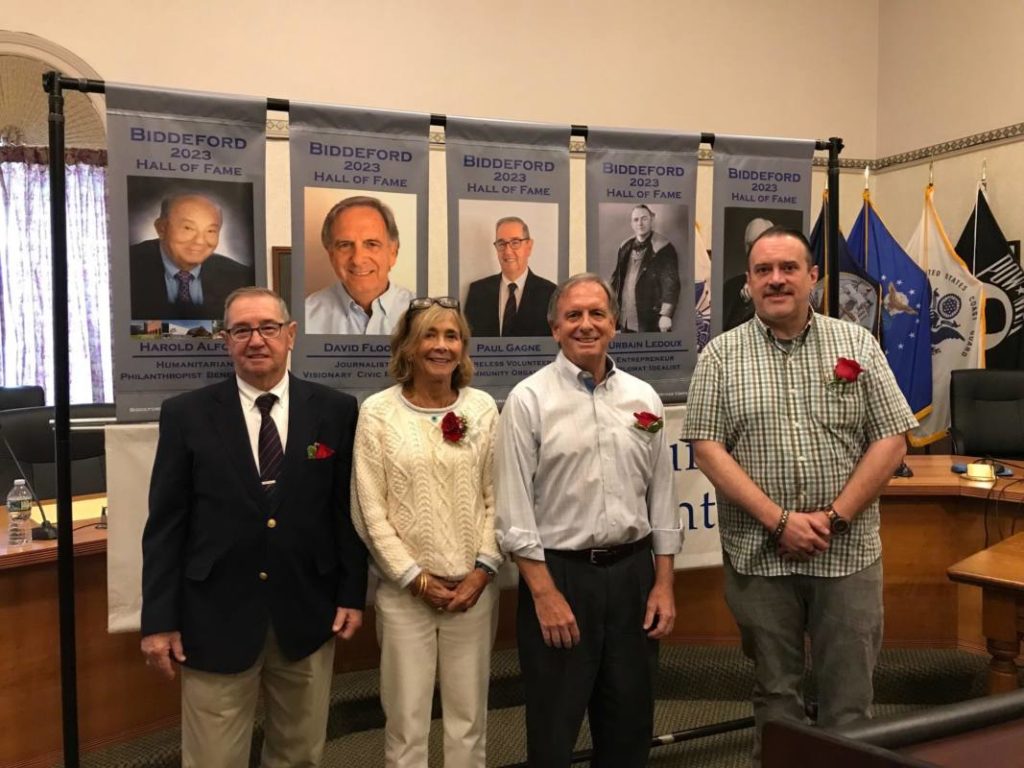
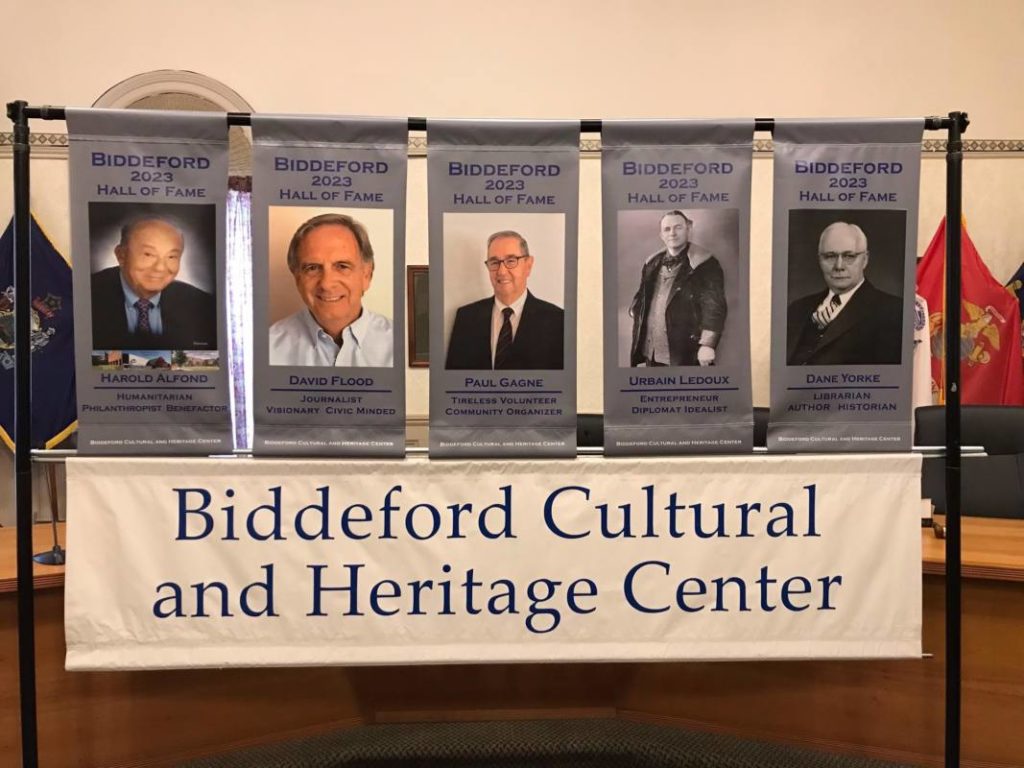
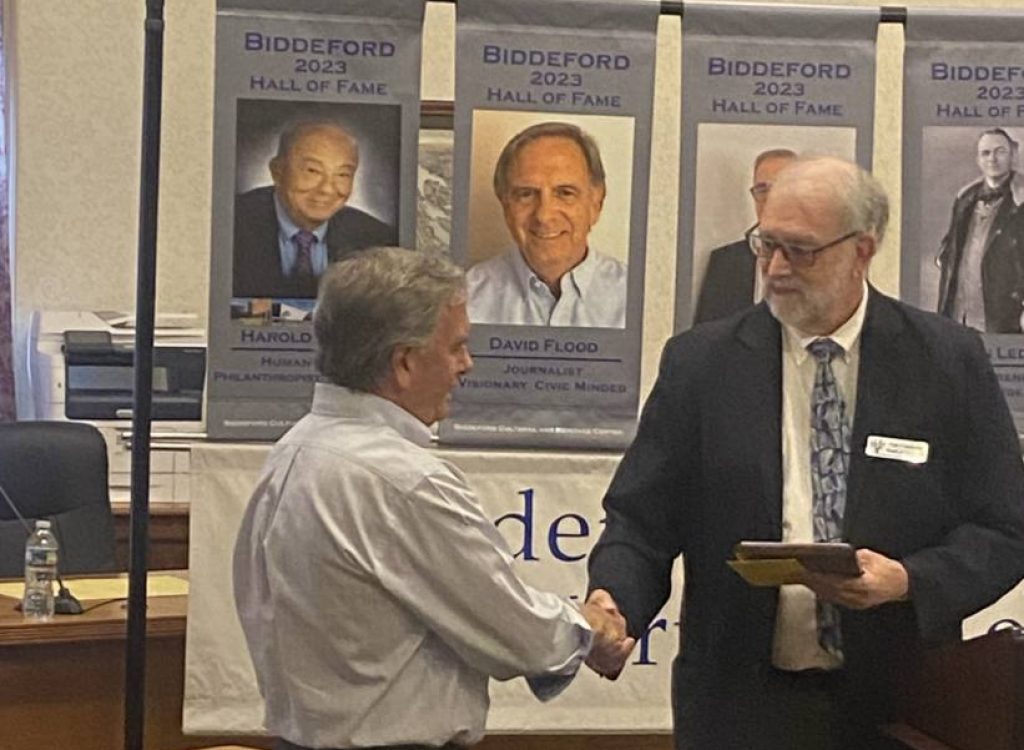
Harold AlfondMarch 6, 1914 - November 16, 2007
Philanthropist, Businessman, Sports Enthusiast
Harold Alfond was born in Massachusetts, the son of Russian Jewish immigrants, Simon and Rose Alfond. He came from humble beginnings, growing up in a large family consisting of one brother and four sisters.
He had a passion for sports while attending high school and was a great athlete. Although he has several honorary degrees, he never attended college.
Harold worked with his father, at Kesslen Shoe in Kennebunk, a shoe manufacturing business. He later went on to start Dexter Shoe Company and was credited with starting the first factory outlet stores.
When he was 36 years old, Harold organized the first private foundation in the state of Maine, the Harold Alfond Foundation. The foundation contributed more than $100 million to charitable causes, from 1950 to 2003, and continues to do so to this day.
Money was donated to many institutions of learning to help improve their sports facilities and educational facilities, including the Alfond Arena and Alfond Stadium at the University of Maine, the Harold Alfond Center for Health Sciences, and the Alfond Forum at the University of New England.
The “Harold Alfond College Challenge” was a vision of his and initiated by the Alfond Scholarship Foundation in 2009 after Harold’s death in 2007. This program provides a $500 grant to every Maine resident who is enrolled before his or her first birthday in order to help the Maine families plan and pay for their child’s continuing higher education.
An obituary found online says that his three favorite phrases were “Don’t tell me, show me”, “Keep it simple” and “If you keep chopping wood, pretty soon there will be a pile.” It goes on to say that these sayings capture the special qualities that defined Harold Alfond, describing him as a soft-spoken man with a common touch who inspired people to action, and could usually put the essence of a situation into a single word or sentence.
Harold Alfond’s understanding of the needs of the younger generations, his vision of what was needed for future growth, his care of community and reconization of the value of a good education, as well as his generous support of the University of New England, and much more, has had a significant impact on all many lives in our community and the State of Maine.
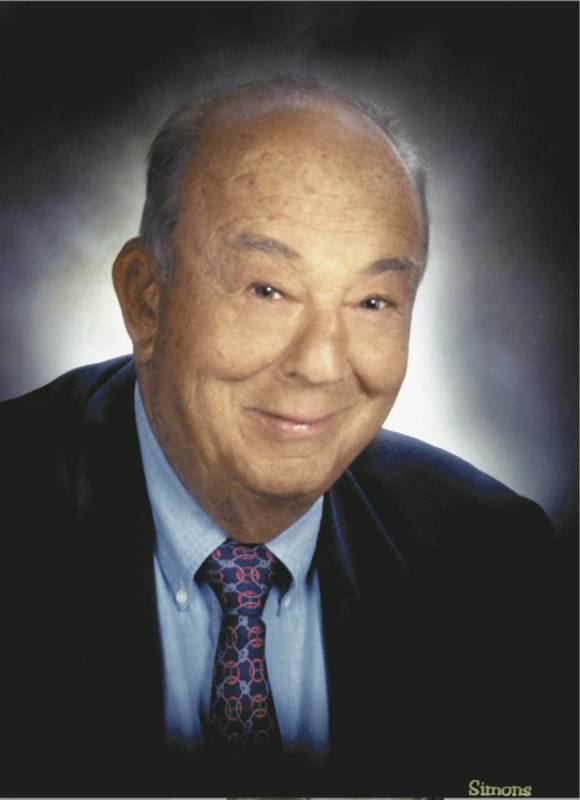
Harold Alfond- photo by H. Simons
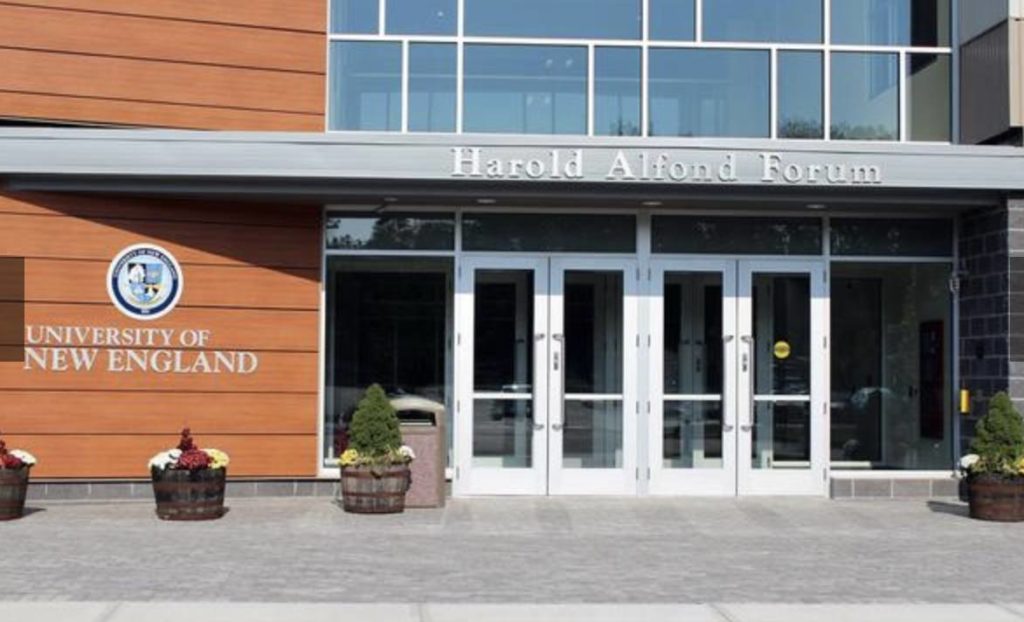
Harold Alfond Forum at University of New England
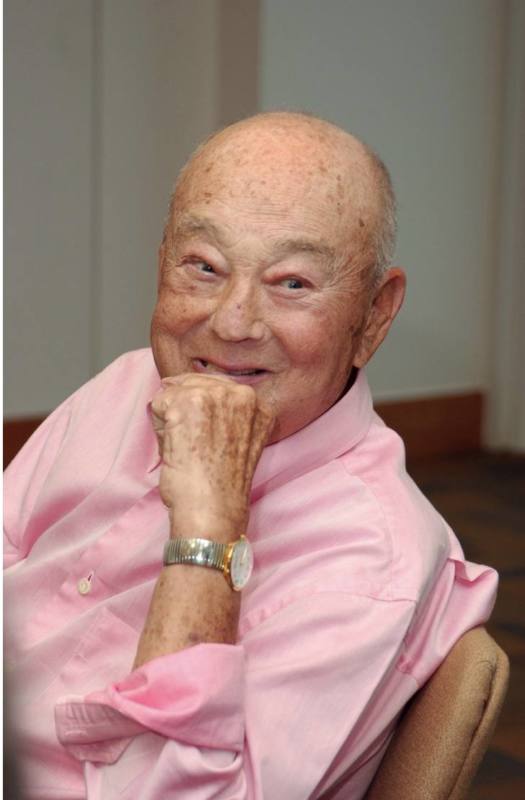

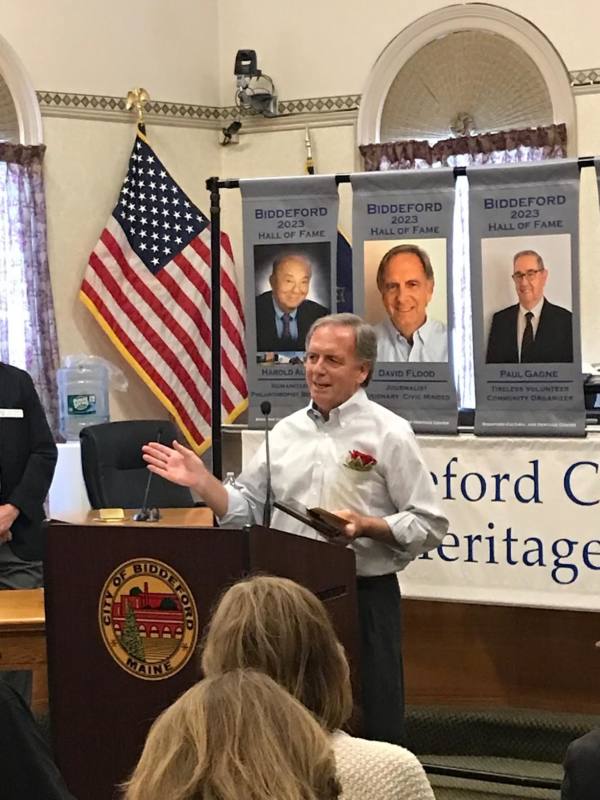
David Flood
Businessman, Publisher
David Flood was not born or raised in Biddeford, yet when he moved here, this was his home and he embraced his community, making it better and stronger.
In 1989, David founded the Biddeford-Saco-OOB Courier. The company grew to have six weekly papers with many full-time employees. The free papers covered news of several local areas, helping people to know what was going on in their communities. The papers were a cost effective way for businesses to advertise their marketing needs, providing a venue to reach many people over the years.
David was instrumental in founding the Heart of Biddeford (a Main Street Maine organization dedicated to downtown revitalization) in 2004, when he worked to raise the $40,000 needed to operate the organization. He served as its president for the first five years, and continued to serve on the board of directors until he moved to Delaware to be nearer to his family.
He also invested heavily in the downtown, buying and renovating buildings, and served on numerous commissions and committees, such as the City Council for numerous terms, as president of the Biddeford-Saco Chamber of Commerce & Industry in 1996 at which time a new executive director was hired and a membership drive nearly doubled the prior membership of the Chamber, the Strategic Planning Committee, and the Zoning Board of Appeals to list a few.
David Flood says he “enjoys making a difference” and he has excelled at it. Although he doesn’t seek the limelight, his vision and eye for new opportunities, hard work ethic, and attention for detail have brought him recognition he richly deserves. In August 2022, he was honored when the Biddeford City Council selected him as the “Spirit of America Volunteer of the Year.” It was well deserved.
Paul (Normand) Gagne
Community Supporter, Volunteer, Family Man
Born in Biddeford in 1941, Paul Gagne (known as Normand in his youth) grew up in Biddeford, and is a lifelong resident.
Growing up in Biddeford during the 1940’s and 1950’s, he made numerous lifelong friends. He served as an altar boy at St. Joseph Parish and also attended St. Louis High School. Paul is proud to have served his country as a member of the United States Air Force for four years after his graduation.
He married his high school sweetheart and raised two children in his hometown. He is a well known, hardworking, caring individual, and a family man. His faith is important to him as evidenced in his life today. He serves as an altar server and sacristan, and has served on the Parish Council and St. Joseph PTO. He is also chairman of the Good Shepherd Finance Committee and vice-president of the St. Jean’s Baptiste organization.
Like many before him, Paul worked at the West Point Pepperell for a period of time after his military service was done. He later got a job with the City of Biddeford and worked there for 30 years as a data processing manager. The information technology (IT) experience he acquired during his service with the Air Force helped open that door for him. He played a significant role in building automated systems for the City when computers were in their infancy.
Volunteerism is innate to Paul. As a family member, he has been involved with the St. Joseph School Parent Teacher Organization, in his children’s activities, coaching little league as well as Biddeford Youth Hockey, and also played hockey himself for many years at the Biddeford Ice Arena. But, his volunteerism is not limited to family or church related activities.
His civic duty and community service include much more. Paul has served as a member of the Board of La Kermesse since its inception in the 1980’s and is the treasurer of the organization. Now in his 80’s, he still spends many hours helping to organize the annual LaKermesse Festival and helps to install the Christmas decorations on downtown light poles every winter. He is a volunteer for the Biddeford Fire Dept. and holds several part time jobs.
Paul is the treasurer of the Biddeford Cultural and Heritage Center and works tirelessly on behalf of the center to assure it succeeds and his vision for the future is made possible. HIs interview for the Voices of Biddeford can be found on the BCHC YouTube Channel. In 2021, Paul Gagne was named the 2021 Volunteer of the Year by the Biddeford Cultural and Heritage Center. This year, he received the Spirit of America Award from the City of Biddeford in recognition of all his hard work and dedication to the community he lives in and loves.
As Mayor Casavant so eloquently said during the 2023 Hall of Fame Induction Ceremony , it is people like Paul Gagne, hardworking, caring individuals who “are the cornerstone of what Biddeford is, and the people who we are inducting today, are the cream of the crop. They’re the ones who have given of their lives in some form or fashion to make this a better place in which to live and to work and to play.”

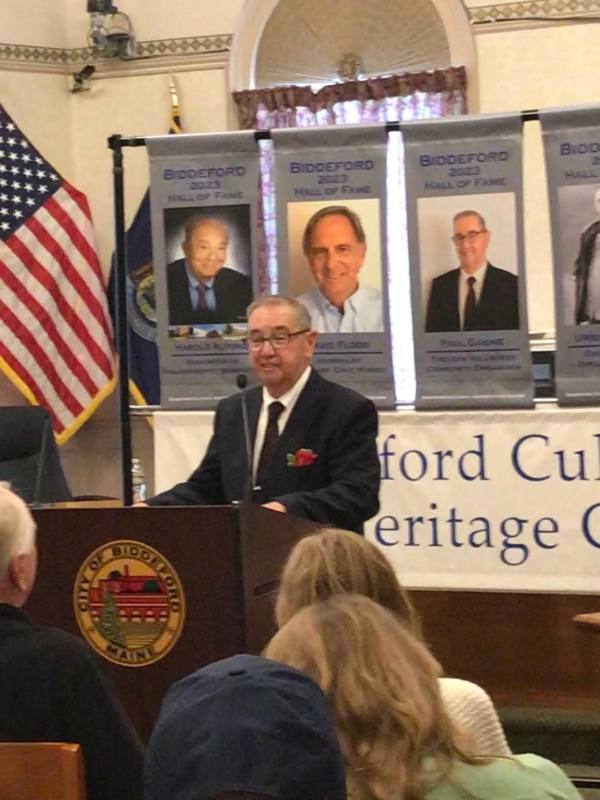
2023 Biddeford Hall of Fame Inductee
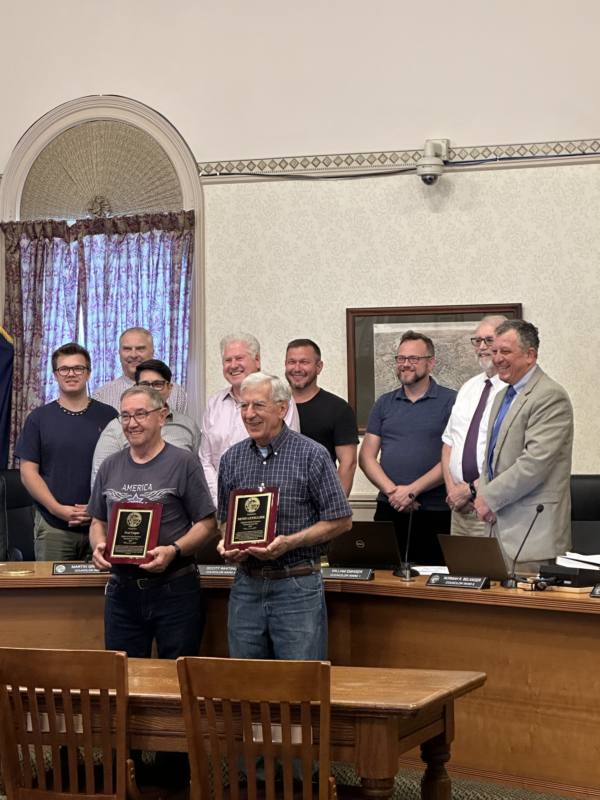
Receiving 2023 Spirit of America Award from the City of Biddeford.
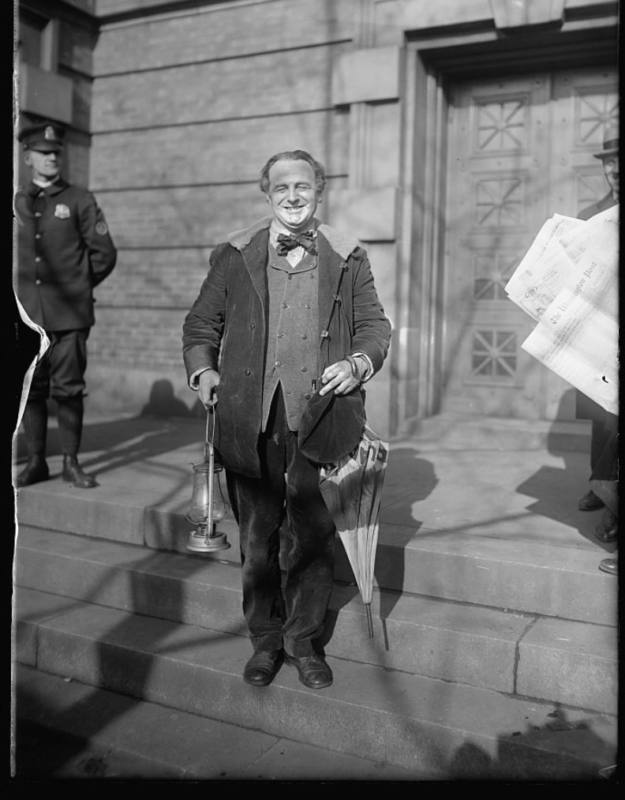
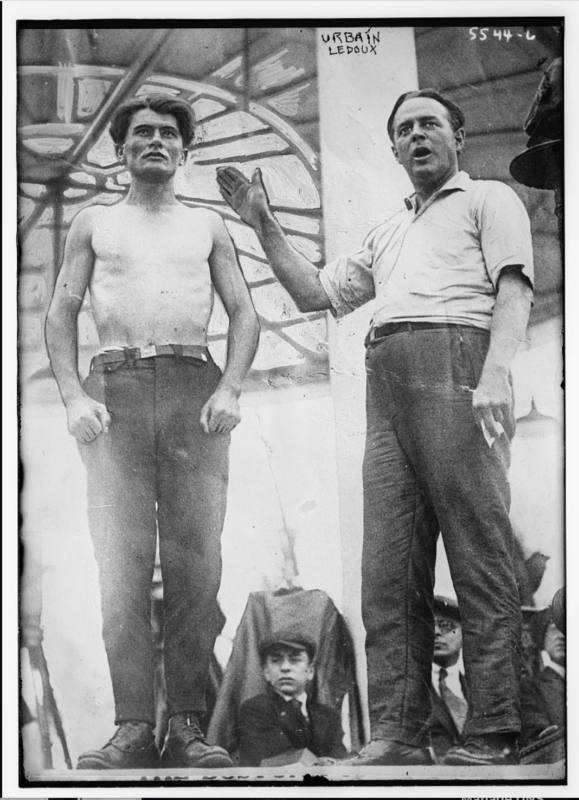

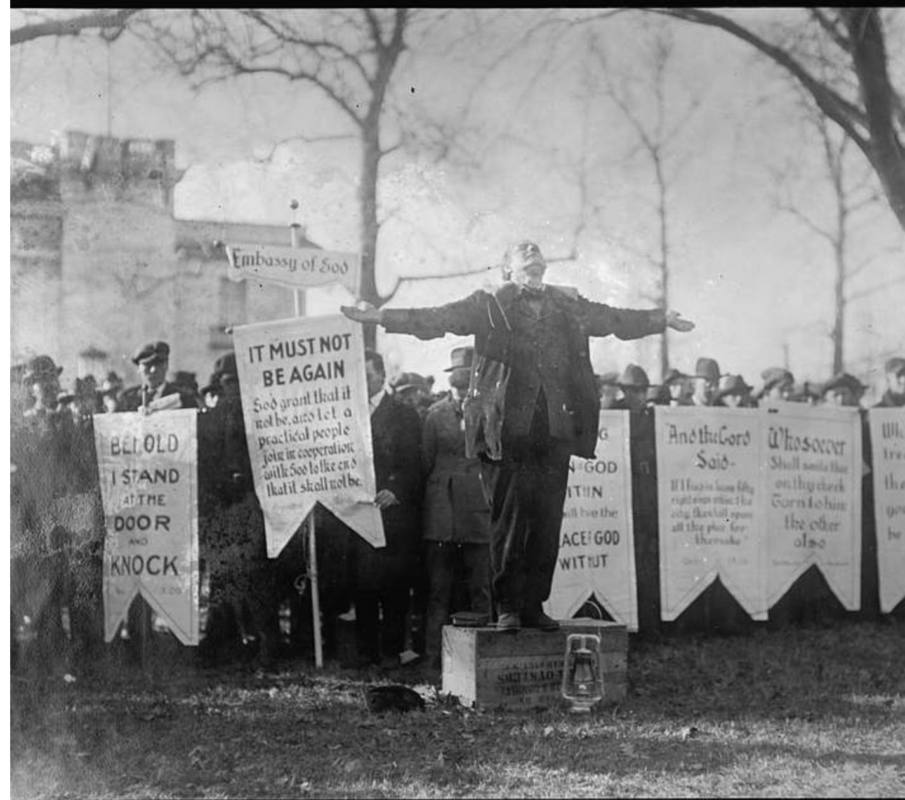
Urbain Ledoux
1874- 1941
Diplomat, Humanitarian,
Peace Activist
Urbain Ledoux had a colorful and eventful life, yet many in the community don’t know who he was, what he did, or that his roots were here in Biddeford, ME. Urbain’s parents had immigrated to the US. but they returned to Canada when his mother was pregnant with him, due to the Panic of 1873 and mill closures. Ledoux was born in Canada but the family returned to the US, settling in Biddeford, Maine, where he grew up, before his first birthday.
Although he was an avid reader and eager to learn, Ledoux had to quit school at the age of nine to help support his family when his father became ill. He continued to further his education, mostly self taught. The family lived down the road from St. Joseph Church, where Urbain served as an altar boy and sold rosaries after mass to make money for the family. He aspired to become a priest, entering a seminary at 15 years old, but he quit two years later after witnessing a case of priest abuse.
Urbain Ledoux had a quest to serve humanity from a very young age. By 1893, at the age of 19 years old, he was publishing a much-needed French weekly in Biddeford called L’Indépendance. He worked for a law firm and other businesses, using this experience to further his mission of helping others. He became involved in local politics and the Republican Party. He helped immigrants from Canada to register to vote, and then encouraged them to do so.
At 21 years old, Urbain Ledoux became the youngest person ever appointed to the U.S. Consular Service, assigned to Three Rivers, Quebec and also serving in Prague. Ledoux left the consular service, returning to the U. S. in 1910 to further his humanitarian efforts, working to raise awareness of the plight of the unemployed in New York and Boston, and with the growing peace movement. He followed the Bahá’í faith, and credited their principles on his decision to spend his life helping others. His intent was “to awaken the slumbering conscience of the people” to the plight of the homeless, the unemployed, veterans, and hobos.
After World War I, Ledoux worked with veterans to help them find housing and jobs. Under the auspices of his organization Inter-Urbain Unity Hostelries, Ledoux opened up several facilities in New York for those in need, including the Unity Hotel near Greenacre and the Stepping Stone breadline. Although he focused on down and out veterans, he worked on behalf of all who needed help. His first New York breadline, the Stepping Stone in the Bowery, opened in 1919. He then launched a soup kitchen called The Tub, which according to him “one of the cleanest little restaurants in New York, where you can get meals for 5 cents—all you can eat.” The Tub was also an employment agency, with many patrons employed there, and regularly made newspaper headlines as a place that served up the best holiday and turkey dinners around.
The stunts Urbain pulled in his lifetime were meant to bring attention to the plight of others, not to himself, and it worked. His radical tactics were covered on the front pages of many newspapers nationwide, and his public performances often landed him in hot water or jail. He used the nickname “Mr. Zero,” saying he didn’t want the attention on him, for he was nothing.
In 1921 he held a live public auction of unemployed men, many veterans of World War I, reminiscent of a slave auction, in which 150 men found jobs. He also started the Hoboes Union. He met with a few presidents through the years, including Warren G. Harding, in his humanitarian efforts. He walked around holding a lantern, shouting that he was “looking for an honest man” or “a Christian delegate” who would address the wrongs in society. The stunt ended with Ledoux passing his lantern to former presidential candidate, Eugene Debs.
In 1915, Urbain was not accepted to be part of the mission of the Peace Ship, which was financed by Henry Ford. The expedition was tasked with trying to end World War I. When the ship set sail that December, he jumped off the pier and began to swim after it, bringing more attention to Mr. Zero with front page coverage.
Ledoux furthered his advocacy for the unemployed during the Great Depression. As more men and women fell behind in society, he worked even harder to provide them with care and dignity, drawing attention to hunger and homelessness in cities. Ledoux earned a reputation as an agitator, and he wasn’t warmly welcomed by city officials when he made his way to Manhattan after World War I, where he took up the cause of poor veterans. Some of his actions such as the slave auctions, and rallying for tickets to President Harding’s inaugural ball so he could bring a contingent of poor people—were seen by some as publicity stunts, but this brought the spotlight on the thousands of people sleeping in parks and scrounging for food in the modern New York of the 1920s.
In 1932, he again focused his efforts on unemployed veterans, leading another picket line to the White House. He ran for mayor of New York City in 1933. Ledoux worked almost 25 years to help the poor and downtrodden. He was well aware of the apathy society felt towards them, and the ways in which they were denounced and excluded from normal society. In 1934 he led a rally of unemployed men who were asking to be treated as good as animals, drawing attention to just how poorly these men were treated. As New Deal programs were enacted to help those in need, and the depression came to an end, Ledoux’s work made headlines less often.
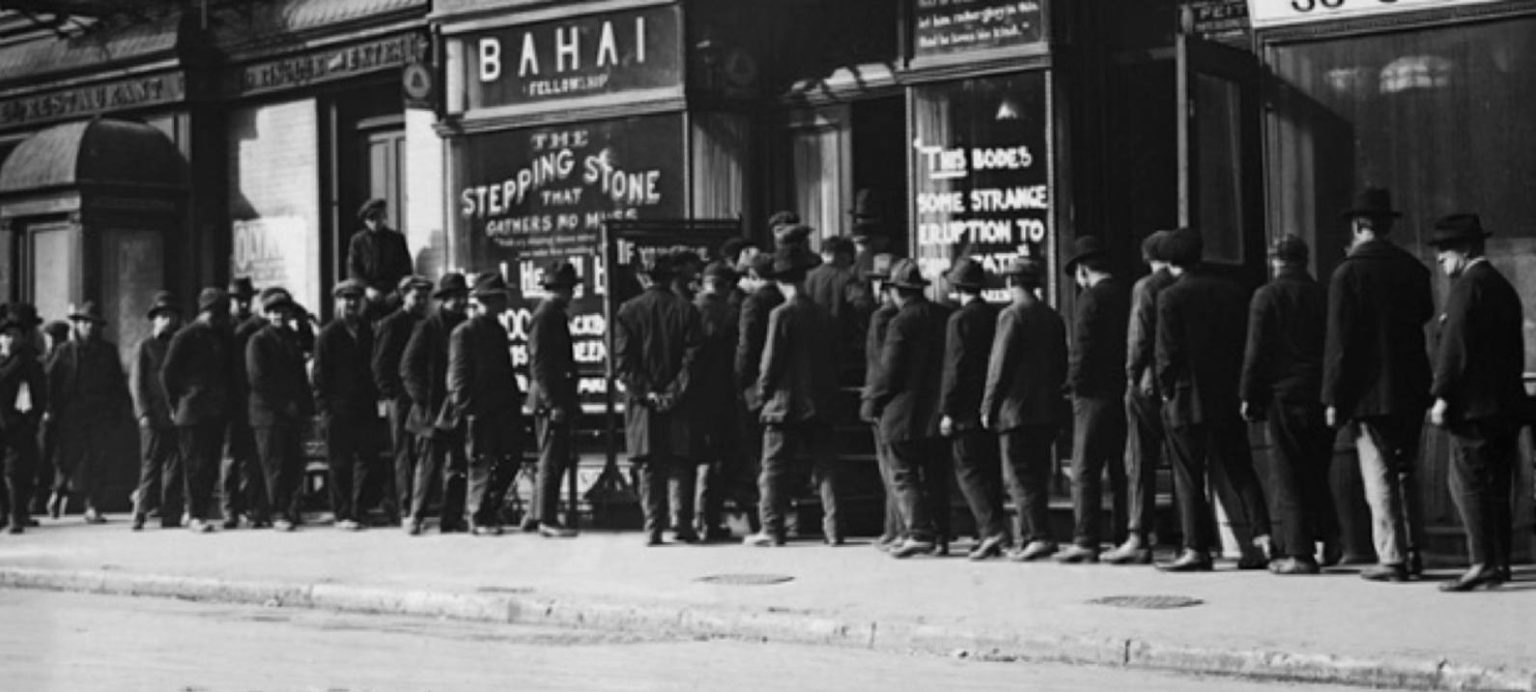
Dane Yorke
1886 – 1970
Author, Historian
According to information passed on from Dane Yorke himself to the Maine State Library, as part of the Maine Writers Correspondence, he was born in Pennsylvania and also served in the army until the end of the war.
Yorke eventually settled down in Biddeford with his wife in the early 1930s. He initially worked as a manager at a bookstore here, the Dearborn News Company, and published stories and essays for American Mercury magazine (working under HL Mencken), as well as authoring the novel As Much as Twice.
Yorke worked part time at McArthur Library when the City Librarian, Emma Hatch, retired after 42 years. He became the City Librarian at McArthur Library in 1937.
At the library, Yorke bought books for the community, oversaw two major renovations, and ran programs for adults and children that often featured his own research and work on local history, his most important legacy to Biddeford.
Having a demanding job did not slow him down. In 1951, he was serving as the Director of Civilian Defense and Public Safety for Biddeford, an organization where he led more than 200 trained for peacetime emergencies.
Over his thirty years in leading McArthur Library, Yorke amassed a historic collection the Biddeford community still benefits from today, and published a series of nonfiction books and essays about Biddeford’s history.
Through the 1940s he published The Men and Times of Pepperell, An Account of the First 100 Years of the Pepperell Manufacturing, as well as A History and Stories of Biddeford.
His legacy lives on in the fact that his work is still some of the first researchers go to when looking into the history of Biddeford. McArthur Library is fortunate enough to retain in its collection a wealth of knowledge from Yorke, with his own handwritten notes included.
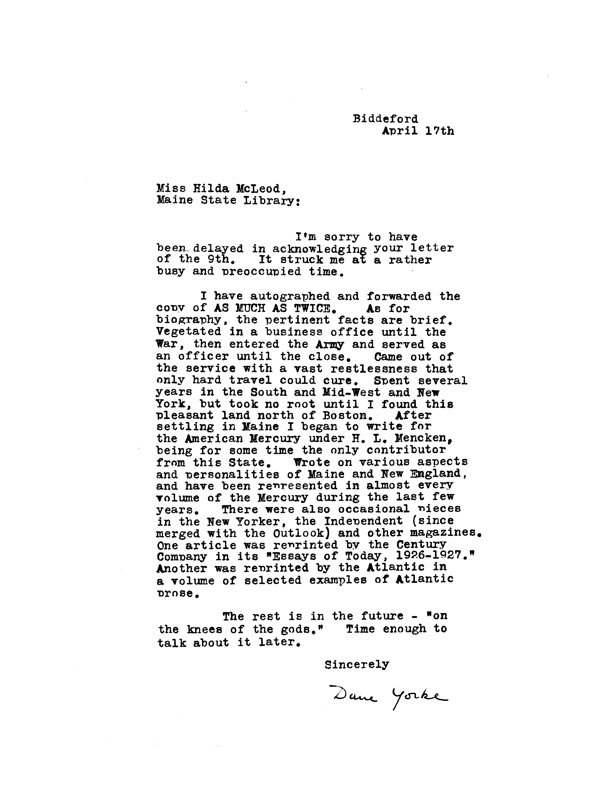
Letter sent by Dane Yorke to Maine State Library in 1935.
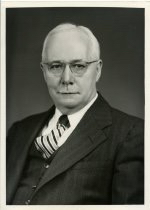
Above (L-R) William Shaw, Louis Lausier, Dane Yorke (Biddeford, ME), R.W. Cotton (Bideford, UK) and Armand Duquette (Biddeford, ME), 1943. Photo courtesy of McArthur Library.
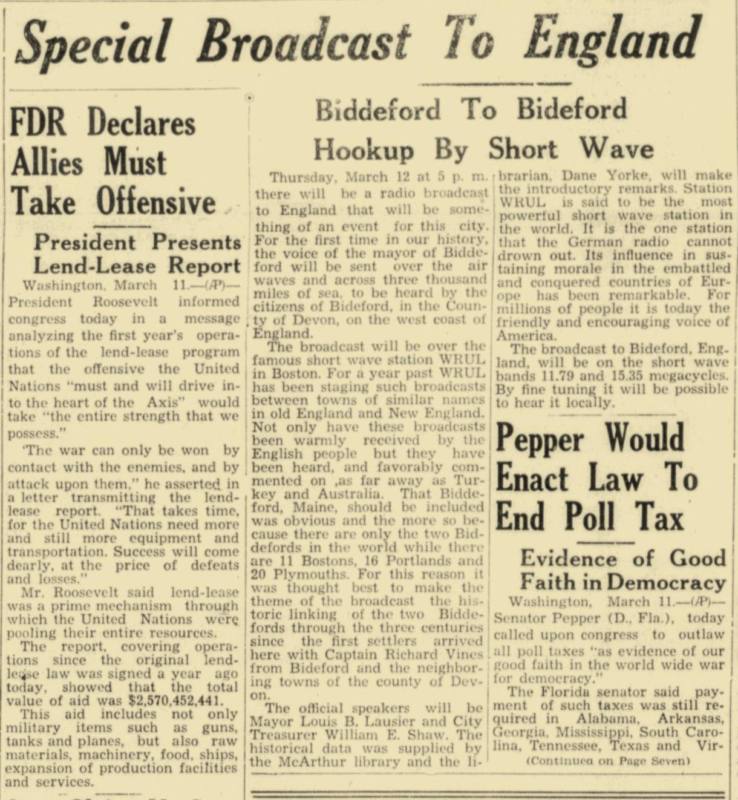
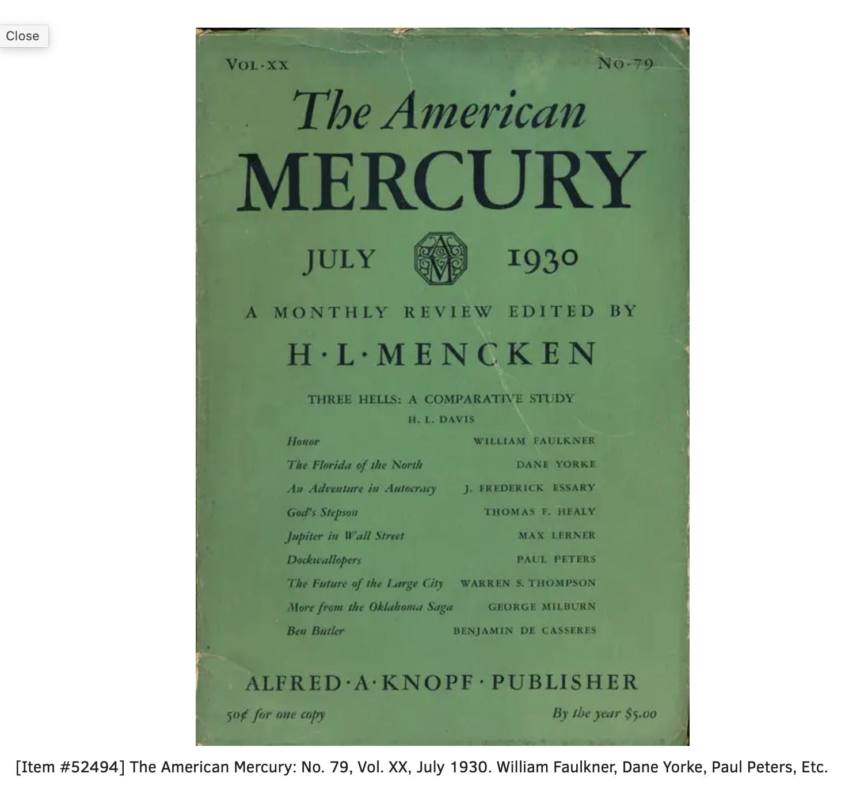
Books by Dane Yorke

